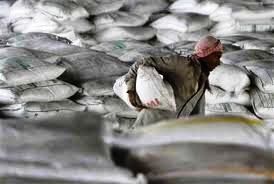 Cement companies are taking the place of fast-moving consumer goods stocks on Dalal Street.
Cement companies are taking the place of fast-moving consumer goods stocks on Dalal Street.
Historically, FMCG companies have been the most expensive stocks in terms of price-to-earnings multiples because of their sturdy financials across business cycles. Now, that is changing.
Consider this: UltraTech, India’s largest cement maker, is trading at 35 times its net profit in 2013-14 and is more expensive than ITC and Hindustan Unilever, two of the country’s top consumer goods firms.
At its current stock price, ITC is trading at 31 times its earnings in the past 12 months, while HUL is available at 34.5 times its trailing earnings.
Other top cement makers are not cheap, either. Holcim-owned ACC and Ambuja are trading at 27 times their trailing earnings and Shree Cement at 32 times.
Stocks of all these cement makers have hit new life-time highs in the recent rally and risen 30-60 per cent in the past three months.
FMCG companies, on other hand, haven’t participated in the current rally and both ITC and HUL scrips are trading below their previous highs.
Experts said these were unusually high valuations for commodity companies with cyclical earnings.
“Cement is a cyclical industry with a high degree of demand and earnings volatility.
These stocks usually trade in low double-digit earnings multiples.
FMCG companies, by comparison, show stable earnings across business cycles and command a premium valuation for their earnings stability and certainty,” says G Chokkalingam, founder of Equinomics Research & Advisory.
According to him, there is an element of exuberance in their current stock prices.
“The market is running ahead of fundamentals and unless we see a sudden spurt in demand that sends cement prices through the roof, the current valuations cannot be justified,” he says.
The top-four cement makers, which together account for nearly three-fourths of the industry’s combined market capitalisation, are now trading around 30.9 times their combined net profit in the year ended March.
This is only a notch below FMCG companies’ average P-E multiple of 33 times.
Historically, top cement makers have traded at around 15-18 times their trailing earnings, much below FMCG’s 10-year average P-E multiples of 25-27
This is only a notch below FMCG companies’ average P-E multiple of 33 times.
Historically, top cement makers have traded at around 15-18 times their trailing earnings, much below FMCG’s 10-year average P-E multiples of 25-27 times.
A similar exuberance is also visible in stocks of capital goods companies like L&T, Thermax, ABB and Siemens, with most of these touching new highs and trading at historically high valuations.
Bulls, however, reject this. “They might look expensive on P-E multiples but most top cement makers are still available at closer to their replacement costs.
“Once cement prices start rising in reaction to faster demand growth, you will see a rapid growth in their earnings and the current P-E ratio will not look expensive any more,” says a cement analyst with a leading brokerage firm.
“Cement stocks could still give good returns to shareholders over the next two to three years, given the potential upside in their earnings, he adds.
Cement industry executives agree. “We command premium pricing not only for the potential earnings upside but for the way we manage our equity.
“Our capacity is set to increase by around a third to 21 million tonnes by September next year and we are doing this without any borrowings or diluting shareholders’ equity.
“What more can a shareholder ask for” asks Ashok Bhandari, chief financial officer, Shree Cement.
This translates into high return on equity and nearly debt-free balance sheets, despite a consistent double-digit capacity growth rate.
A similar financial conservatism is visible in UltraTech Cement, ACC and Ambuja Cement.
Industry executives say it is, therefore, not surprising that top cement makers are now as expensive as ITC, which relies on internal accruals to fund its capital expenditure, including big-ticket projects in its hotels and paper divisions.
There is, however, a difference.
The tobacco-to-foods-to-paper conglomerate distributes nearly 60 per cent of its net profits as dividends.
In contrast, the payout ratio is less than 10 per cent for both Shree Cement and UltraTech.










